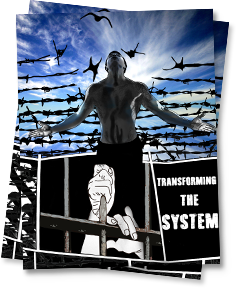Eliminating the criminalization of aspects of homelessness
No one should face discrimination – and especially prosecution or imprisonment – because they do not have a place to live. Yet, as access to affordable housing has decreased, there has been an uptick in laws that criminalize homelessness. Local governments have relied upon the police to address homelessness rather than adopting problem-solving strategies that increase access to affordable housing and social services. For example, investing in programs that adopt a Housing First approach, which “prioritizes providing people experiencing homelessness with permanent housing as quickly as possible – and then providing voluntary supportive services as needed.”
Furthermore, criminalizing aspects of the consequences of homelessness has the effect of further marginalizing communities that already face marginalization. LGBTQ youth often find themselves without homes after facing rejection from their families. When on the streets, they often complain of police profiling and harassment, leading to further marginalization. It is important that governments instead increase access to housing, ensure that there are mental health services available, and adopt measures that eliminate discrimination based on housing status.
To address this issues, the Department of Justice:
- “[S]hould issue guidance to state and local governments on the constitutionality and cost-effectiveness of anti-homeless ordinances, intervene in litigation challenging such ordinances, incorporate investigation of civil rights abuses of homeless people as a standard practice in federal pattern and practice investigations, and include provisions addressing discriminatory policing of homeless people in federal consent decrees.”
The U.S. Interagency Council on Homelessness should “publicly oppose specific local criminalization measures, as well as inform local governments of their obligations to respect the rights of homeless individuals.”
Local and state governments should do the following:
- Prohibit the profiling of individuals on the basis of perceived housing status;
- Curtail enforcement of loitering and related offenses;
- Invest in more comprehensive long-term and short-term housing options, and ensure that placements respect individuals self-identified gender specifications;
- Eliminate policies and practices that in effect result in the incarceration and increased policing of homelessness;
- Improve police training on interacting with homeless communities, including “police training curricula to improve relationships with LGBTQ youth and decrease profiling, harassment, and abuse;”
- Ensure that the impact of homelessness on a person’s financial circumstances and efforts to earn money is considered in an ability-to-pay hearing when a homeless person is charged with nonpayment of fines and fees.
- Enact an enforceable Homeless Bill of Rights measure that ensures that homelessness is not treated as a crime.




